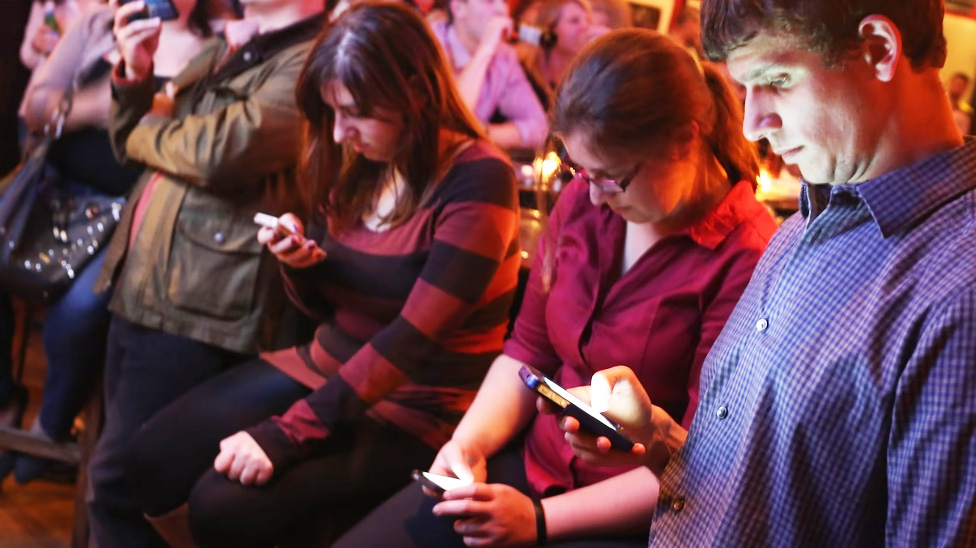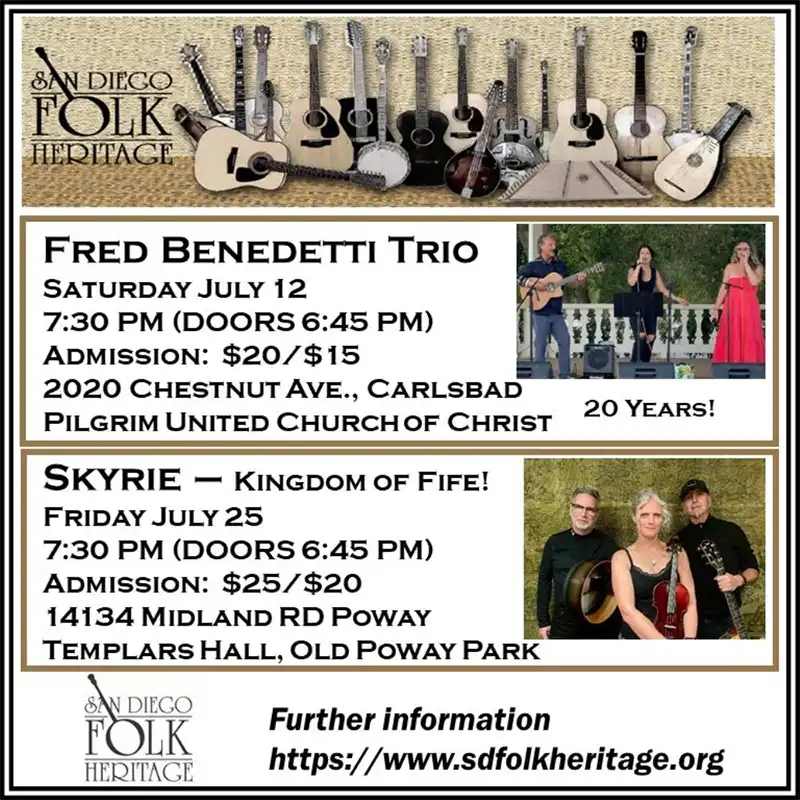Unsolicited Advice
Open Letters Part 1: An Open Letter to Music Goers
Dear Music Goer:

First, thank you. Anyone who is willing to leave the comfort of their home—where all the world’s listening and viewing options are available at will—and deal with traffic, parking, the Fresh Hell of Other People, and the unpredictability and uncontrollability of a live show, should be commended. Thank you.
Now, it’s true: “butts on seats” is one of the metrics we are usually held accountable for by whatever venue we are playing. So, we are always grateful when someone makes the time and effort to come to a show. It means the world to us.
There are some other metrics as well, beyond your mere presence—stuff that matters once it’s your amazing butt on that amazing seat—and that’s what I want to talk to you about right now. Most of what I am going to say applies primarily to clubs where live music is the focus. But it doesn’t hurt to remember it everywhere.
First: The spaces that we play are music rooms. They are made to carry sound. That means…
1. We can definitely hear you talking
If you, amazing-butted audience member, are also putting sound in the air while we are, you are essentially spray painting the walls of an art museum. It’s not that we think we’re dropping such genius on you. It’s that making sound is the only thing we are there to do, and it’s the thing you and others are there for us to do for you. We have no choice but to deliver sound to you. You have the choice not to make sound while we do so.
We love having you there. But when we hear you talking (which we do), we think one of two things: 1) You don’t like what we’re doing or 2) You don’t care about what we’re doing. And not only that, but 3) You went through the trouble of leaving your home and coming to our show just to show us those things right to our faces. It’s like being read a bad review in real time.
From the stage, if two people in the crowd are talking, everyone might as well be talking. (And let’s face it, sometimes two people is everyone.) We can’t tell and often can’t even see whether it’s one conversation or the whole place ignoring us. Though we do our best to ensure otherwise, this can have a direct effect on the performance. You’re now one more in an already nearly infinite set of variables we have to invisibly juggle in our minds as we perform, instead of being the person we’re juggling them for.
We’re thrilled you left the comfort of Netflix and chili to be in this space with us. But once you’re there with others…keep the spray paint in the can, huh?
Also:
2. Texting is talking, too
The relationship between performer and listener is a conversation. We’re sending music into the air specifically to you. When we look up and see you actively engaged in a different conversation on your screen, it can feel as if we cooked you dinner and halfway through the meal you made reservations to eat somewhere else, right out loud at the table.
Texting is a visually loud behavior.
It might be that you are messaging everyone in the area code about how great the music is. Thank you, truly. But just remember that for us, in real time, it looks the same as it would if you were bored or turned off and couldn’t bear making it through a four-minute song before seeking out “anything but this.” (This would be equally true if you were reading a book or doing a crossword puzzle.) Right or wrong, it tells us we lost you. This is DefCon 1 for a performer! It has the power to change the course of a whole show.
Do us a favor: Text between songs or at the bar or in the bathroom. Or just wait and do it afterward and enjoy the dying art of live people playing music for other live people in real time. You can text any time. This is only happening right now.
Third: Yes, it is fun to play music. BUT…
3. We are there because it’s our job
People often ask us after shows, “Did you have fun?” We know people mean well by this question. But it also has the unintentional effect of casting our whole profession as some kind of lark. It is fun—or at least, it damn well should be, because there’s something fundamentally amazing about the nature of our endeavor! But it’s also our job.
Musicians put in more training time than any profession perhaps other than athletes. When every other kid was out doing stuff after school, we were home practicing. We’ve spent every spare second and cent since then honing our craft, and it doesn’t ever end. We improve but never arrive. At each new level we have to double down and work harder at the things we are worst at. The hour of fun you see us having (or at least appearing to have, if we’re doing our job right) is the result of decades of grueling effort and self-excoriation, including right into that very day and throughout that very show.
You would never think to ask a surgeon if she “had fun” after an operation or an architect if she “had fun” designing someone’s garage. Fun is a bonus, to be sure. But we’re there to work.
Instead of “did you have fun” next time you are at a live performance, mention to a musician something you noticed or enjoyed about the set. Maybe a particular moment in a solo, or a flow of songs, or a way they interacted with others on stage or in the audience, or something it meant to you to be able to hear them, or something that you will do or think about in the future because of this show. In other words, let them know they were heard. As musicians, we send signals out into space, Voyager-style, and hope they are received anywhere, by anyone. The times people have said things like this to me after a show have stuck with me forever.
That may seem like a lot to put on a band that might have just played the 10,000th version of “Lovely Day.” But, remember: musicians are humans creating sounds for you and with you in real time, and by definition those sounds are different from any other time anyone has played and heard them—including these same people. Let them know you listened, not that you feel you allowed them to have fun on your dime.
Now, finally: after all this talk of paying us in attention…
4. Tips are appropriate at any music performance
Can I tell you an awful secret? Nightclub musicians’ pay generally stalled at some point in the ’80s. I don’t mean “rose but didn’t keep up with inflation.” I mean, it stopped at the number it was 40 years ago. To be sure, that rate used to be and still can be among the healthiest across all professions on a per-hour basis. But one day, in a time before the majority of the people alive today were born, clubs simply stopped raising it, forever.
Some of us are lucky enough to have musical opportunities beyond those club gigs. But trust me, you are not spoiling any of us by tipping us. If there’s no tip jar out there, ask out loud between songs how you can tip us. Or ask the bar for a wine bucket and get one started for us. Or ask where to buy our recordings or swag, or whether we are funding any projects you can contribute to. Most musicians I know are the hustlingest folks on the planet. Tipping is not rewarding anyone’s self-indulgence, it’s acknowledging that you value the way we’ve decorated the small amount of time we’ve all spent together this evening.
It’s likely you tipped the Uber driver on the way there (and she was probably a musician too!). Why not drop a little in the bucket of the people that driver brought you to see? Or “round up” to what you’d have spent if you went to a movie instead?
Now, to be sure, proper compensation should be the clubs’ responsibility. They claim they would fork over more if more people cared about what we do, and that they aren’t stopping anyone from tipping us. So, shame them with your largess! We are not living large on that little bit of kindness. We are chipping away at decades of economic imbalance.
Music is a very, very tough life. It’s magical, don’t get me wrong; the best things I’ve ever gotten to do have been because of music. But if any of us could have taken an easier or more traditional path, I’m sure we would have. Music is not something most of us “do,” it’s a thing most of us are and can’t not be. You do not spoil us by tipping us or aggrandize us by paying attention while we perform. You simply affirm, in the most direct way possible, that the time that musicians make music for your amazing-butted self—the brief conversation between performer and audience in only that place and time—means something to you not just as an activity for a night, but as a concept in life.
Signed,
Your Friendly Neighborhood Music-Maker
Next month: Open Letters Part 2: An Open Letter to Music Makers
Is there something I should offer unsolicited advice about in future columns? Shoot me a line via the contact form at joshweinstein.com and let me know.





